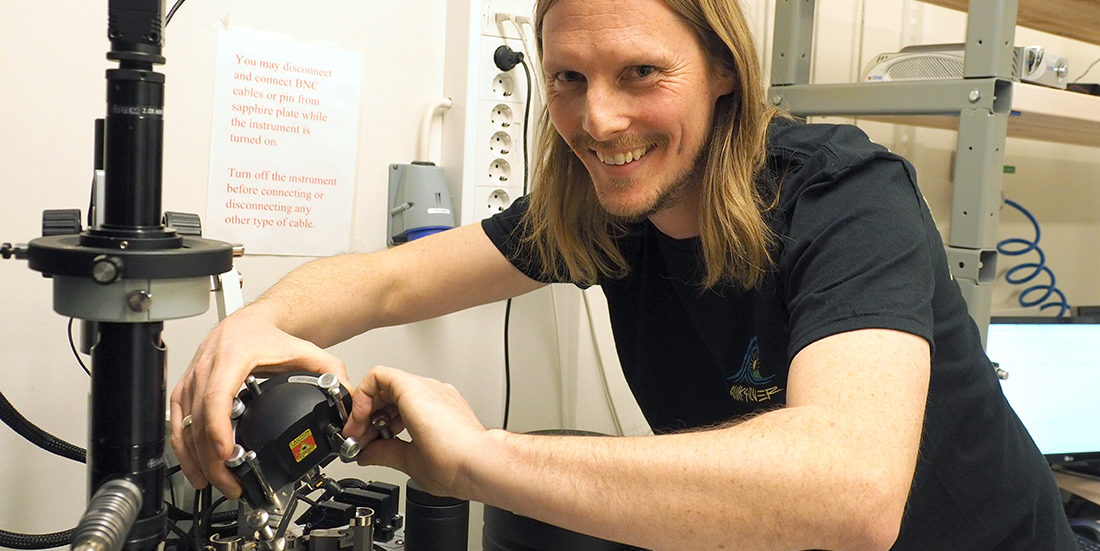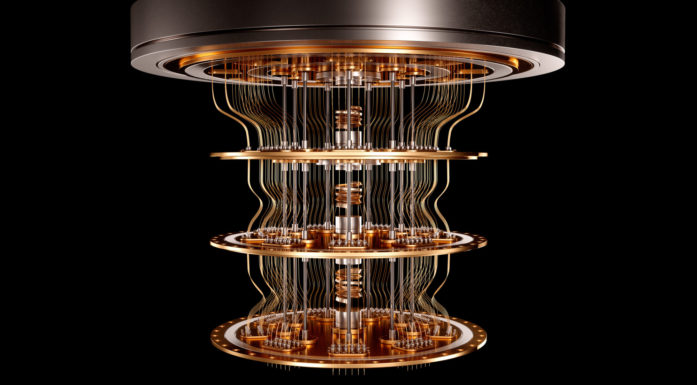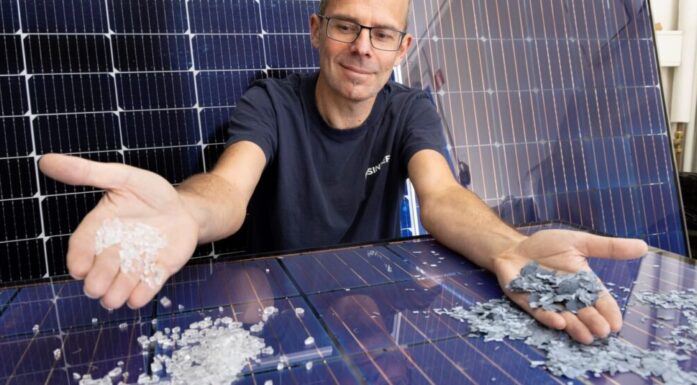Prestigious EU grant to create the world’s smallest network
Professor Dennis Meier and the research team he leads will create the world’s smallest electronic network. Dennis Meier has been awarded the ERC Consolidator Grant to conduct this research.
Professor Dennis Meier and the research team he leads will create the world’s smallest electronic network. Dennis Meier has been awarded the ERC Consolidator Grant to conduct this research.
Since 2007, the European Research Council (ERC) has provided funding for cutting-edge research, and ERC grants are awarded to outstanding researchers who are pushing boundaries in their field.
The ERC has four types of awards: Starting, Consolidator, Advanced and Synergy Grants, depending on the length of the applicant’s research career. The ERC receives around 10,000 applications each year. Around 10 per cent of the applications are accepted. Dennis Meier’s application was one of them, and resulted in a much sought-after ERC Consolidator Grant.
Expands the research team
The research grant amounts to just over EUR 1.8 million over five years. It will be used for a project Dennis Meier calls Atronics, from “Creating building blocks for atomic-scale electronics“.
The money from the EU makes it possible to add five new positions to the ten researchers who are already working with Meier, who is a professor at the Department of Materials Science and Engineering at NTNU.
Provides new knowledge in physics
Dennis Meier and his research colleagues are working on functional electronic and magnetic systems at the nanoscale. With the Atronics project they will be working on the smallest electronic networks in the world. Or rather, they will imitate the behaviour and functionality of ultra-small electronic components.
Their research will give us new knowledge in physics. One day, it could lead to major breakthroughs in electronics. If they succeed, it can lead to much faster networks and computers that barely use electricity.
“We do not yet know how far we can stretch and cross boundaries and what we can achieve, but regardless we will find a lot of interesting physics on the way,” Meier notes.
The work is interdisciplinary, and the Department of Materials Science and Engineering is working with the Department of Physics and the SFF Center for Quantum Spintronics (QuSpin), among others.
Read more about Meier’s research:
- World’s tiniest circuit takes shape
- On the topology of helimagnets and difficult-to-understand things
Support young research talents
For several years, NTNU has made a conscious effort to highlight young research talents. Among other things, the university has developed a talent programme for young researchers, Outstanding Academic Fellows Programme as well as an Onsager Fellowship Programme. Dennis Meier is part of both. One of the goals of this effort is to increase the number of ERC awards to NTNU researchers.
Associate Professor Josef Kiendl at the Department of Marine Engineering also received an ERC Grant. He has meanwhile moved on to a new position in Germany.
- Read more about ERC projects at NTNU.
Important with the freedom to define one’s own path
“The ERC has proven time and again that this is an instrument that can put Europe at the forefront of groundbreaking research. This was clearly stated in the Lamy Report in 2017:
‘The European Research Council is recognized as a global brand synonymous with research excellence’,” ERC President Jean-Pierre Bourguignon said in a webcast.
“What the ERC has proven above all is the amazing potential of Europe’s young scientists when they are given the freedom to define their own path without being assigned predetermined priorities,” he said.





